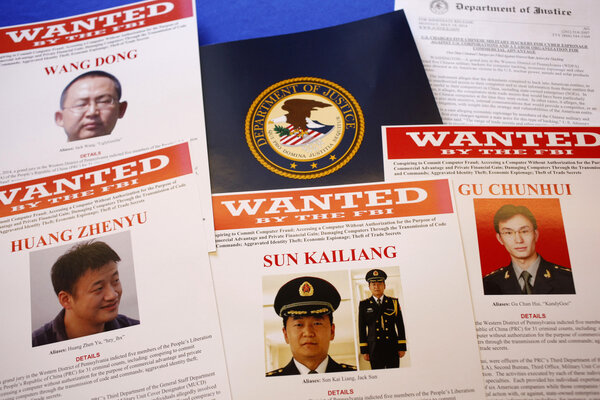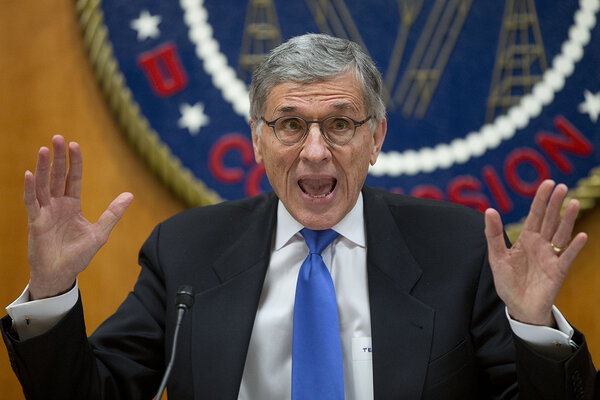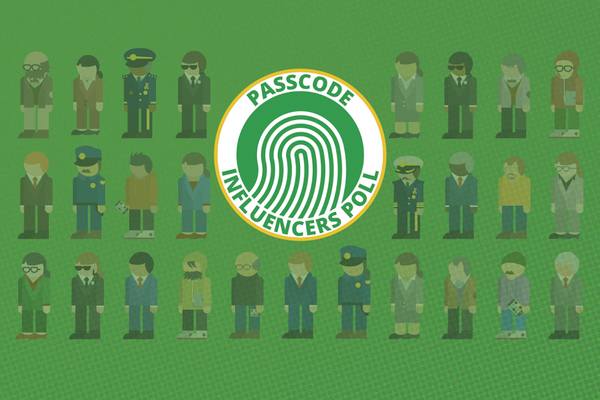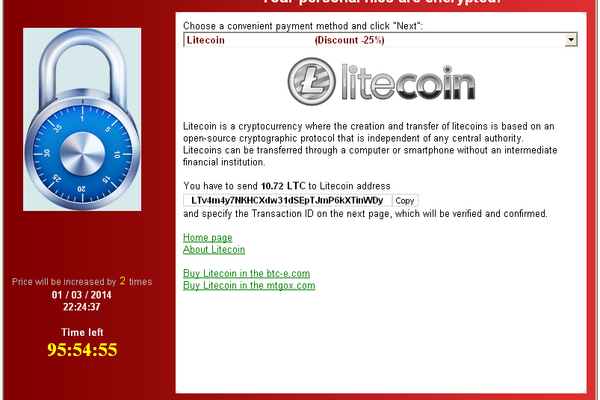All Passcode
 Justice Dept. vows to strike harder against hackers, nations behind cyberattacks
Justice Dept. vows to strike harder against hackers, nations behind cyberattacksJohn Carlin, chief of the Justice Department’s National Security Division, says the US needs to raise the stakes for cyberattacks on the US: If the cost of stealing information from American companies results in swift criminal action or sanctions, hackers may eventually decide it's not worth it.
 What we learned about security and privacy at SXSW
What we learned about security and privacy at SXSWPasscode went on the road to South by Southwest Interactive, the annual gathering of digerati in Austin, Tex. Here's what we learned.
- Industry, privacy groups at odds in opposition to Obama's consumer data plan
Privacy groups and tech industry associations oppose the proposed Consumer Privacy Bill of Rights for different reasons. Their opposition reveals the deep division between those who want more protections and those who say the industry is already doing enough.
- Opinion: Fortifying the Internet of Things means baking in security at the beginning
Protecting smart devices means building cybersecurity into the design process, from hardware to software. Making security a priority at the start, instead of coming up with patches later, is the key to ensuring the growing number of connected gadgets remain safe.
- The former spy who infiltrated Congress’s cyber policy debate
Rep. Will Hurd of Texas brings to Washington rare hands-on expertise from the front lines of American spycraft and information security. Now, as cybersecurity issues heat up, Hurd wants to be a liaison between the intelligence community, tech sector, and lawmakers.
 Revealing Anonymous and its web of contradictions
Revealing Anonymous and its web of contradictionsThe hacktivist collective Anonymous has gone through a significant evolution – shifting from Internet pranksters to prominent global activists. Gabriella Coleman explains the often misunderstood Anonymous phenomenon in her book, “Hacker, Hoaxer, Whistleblower, Spy: The Many Faces of Anonymous.”
 Hacker or spy? In today's cyberattacks, finding the culprit is a troubling puzzle
Hacker or spy? In today's cyberattacks, finding the culprit is a troubling puzzleThe Sony hack revealed the challenges of identifying perpetrators of cyberattacks, especially as hackers can masquerade as government soldiers and spies, and vice versa. It's a dangerous new dynamic for foreign relations, especially as what governments know about hackers – and how they know it – remains secret.
- Opinion: Obama's consumer 'bill of rights' should spark national dialogue about privacy
The Obama administration's proposed Consumer Privacy Bill of Rights should be viewed as the basis for starting a national conversation about stronger data protections laws, which are crucial as there is no future in which less data will be collected and used.
- How the Pentagon plans to replace the password
The password is one of the weakest forms of security. DARPA, the Pentagon’s research arm, wants to solve this problem by turning people and their behavior into passwords through its Active Authentication program.
 Net neutrality could hinder efforts to safeguard Web, worry security experts
Net neutrality could hinder efforts to safeguard Web, worry security expertsSome security experts are concerned that newly adopted net neutrality rules will limit broadband providers' abilities to limit malicious traffic and spam, thus slowing down progress toward a safer Internet.
- Opinion: After high-profile hacks, it's time for a bolder approach to cybersecurity
Among the lessons from the Sony hack was that conventional cybersecurity measures don't always stop intruders. What more corporations need to apply is an active defense to better understand and stop future threats.
- DARPA offers rare glimpse at program to visualize cyberdefenses
The Pentagon's advanced research arm revealed its latest version of Plan X, an in-progress system designed for the military to visualize defending against cyberattacks, at a Passcode event on the future of cybersecurity innovation.
- Invincea's future of cybersecurity innovation
Today, we suffer from two key challenges in addressing cyber security threats: (1) an over-abundance of endless data, and (2) a small pool of highly skilled cyber security personnel.
- Does your security think?
Today, as a nation, we are plagued by attacks from cyber criminals who range from ideologically motivated individuals and groups to well-financed nation-state bad actors. They seek to disrupt our commerce, steal our money and assets and create uncertainty that we have only seen previously in the physical world.
- The future of cybersecurity innovation
A glimpse into the future of defending against threats to cybersecurity featuring a live demo by DARPA's Plan X team of its cyber threat visualization system.
 Influencers: Obama's info-sharing plan won't significantly reduce security breaches
Influencers: Obama's info-sharing plan won't significantly reduce security breachesEven if it passes Congress, 87 percent of Passcode's Influencers say President Obama's push for more information sharing between the government and the private sector will not significantly reduce security breaches.
- What is intellectual privacy, and how yours is being violated
It's the notion that in a free society, anyone should be able to read, learn, and debate without being monitored and recorded. Americans have long cherished this freedom, but author Neil Richards says it's being threatened by pervasive online tracking of digital habits and social media discussions.
- Opinion: What cybersecurity pros can learn from 'Ocean's Eleven'
In the movie 'Ocean's Eleven,' cunning crooks outwitted an elaborate defense system. The same dynamic plays out on the digital front. That's why cybersecurity requires strong threat deterrence and not just stronger locks and taller fences.
 Private chat app Telegram may not be as secretive as advertised
Private chat app Telegram may not be as secretive as advertisedTelegram promotes itself as a private chat application. But a security firm says it uncovered a flaw that can reveal a message even after is has supposedly been deleted permanently.
 Why ransomware is spreading, and how to guard against digital hijackers
Why ransomware is spreading, and how to guard against digital hijackersRansomware is malware that encrypts victims' data until they pay up. A popular variety known as CryptoWall has infected an estimated 1 million victims and collected approximately $1.8 million in ransom.











